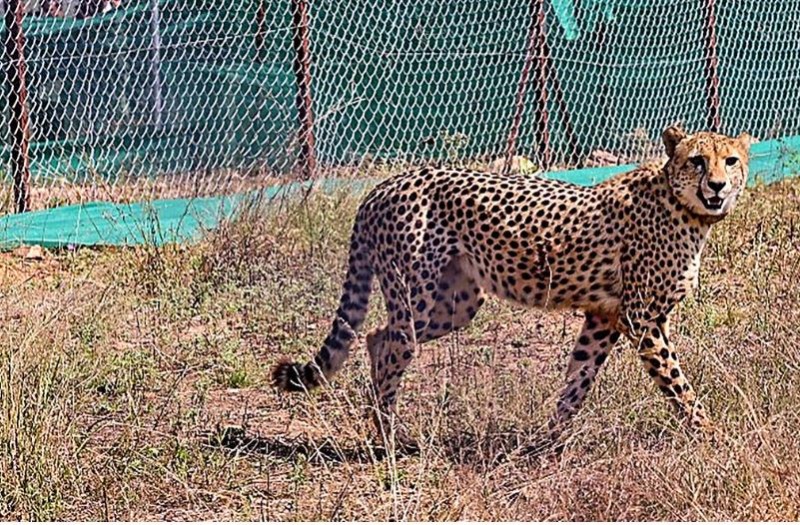
Bhopal: The ambitious cheetah reintroduction initiative in India, spearheaded by Prime Minister Narendra Modi's government, has encountered a significant setback as nine out of the fourteen cheetahs brought to the country have succumbed to various ailments. The endeavor aimed to revive the cheetah population in India after an absence of 70 years, involving the relocation of eight cheetahs from overseas to Madhya Pradesh's Kuno National Park. The plan was to facilitate breeding and restore the presence of these magnificent animals within the Indian ecosystem.
Tragically, the efforts have been marred by the deaths of nine cheetahs, including both the adults and cubs. The ninth fatality occurred shortly after the government assured the Supreme Court that adequate medical attention was being provided to the cheetahs in the national park. At present, a mere fourteen cheetahs remain in Kuno National Park, consisting of seven males, six females, and a female cub. Concerns have been raised regarding their living conditions and the feasibility of their survival.
Factors Behind the Deaths of Nine Cheetahs
Experts have pinpointed multiple factors contributing to the deteriorating health of the reintroduced cheetahs in India. The severe heat, intense rain, elevated humidity levels, and the presence of collars around their necks have collectively posed challenges to their well-being. Previous reports indicated that two of the deceased cheetahs had fallen victim to infections caused by the collars they wore. The latest fatality was attributed to myiasis, a condition involving maggot infestation, which was diagnosed from wounds on the animal.
Experts closely associated with the reintroduction endeavor have revealed that the cheetahs struggled to acclimate themselves to the environment in Madhya Pradesh. The combination of high humidity and scorching heatwaves took a toll on their health, leading to their vulnerability and eventual demise. As India strives to restore these iconic predators to its landscape, the setbacks emphasize the complexity of conservation efforts and the importance of thoroughly understanding the ecological needs of reintroduced species.
Unveiling the Dark Past: The Hindu Kush Genocide and its Haunting Legacy
Understanding the Indus Waters Treaty: Water Sharing Between India and Pakistan
Unsettling Shifts in Indian Law: LGBTQ Protections Under Scrutiny Amid Legal Changes